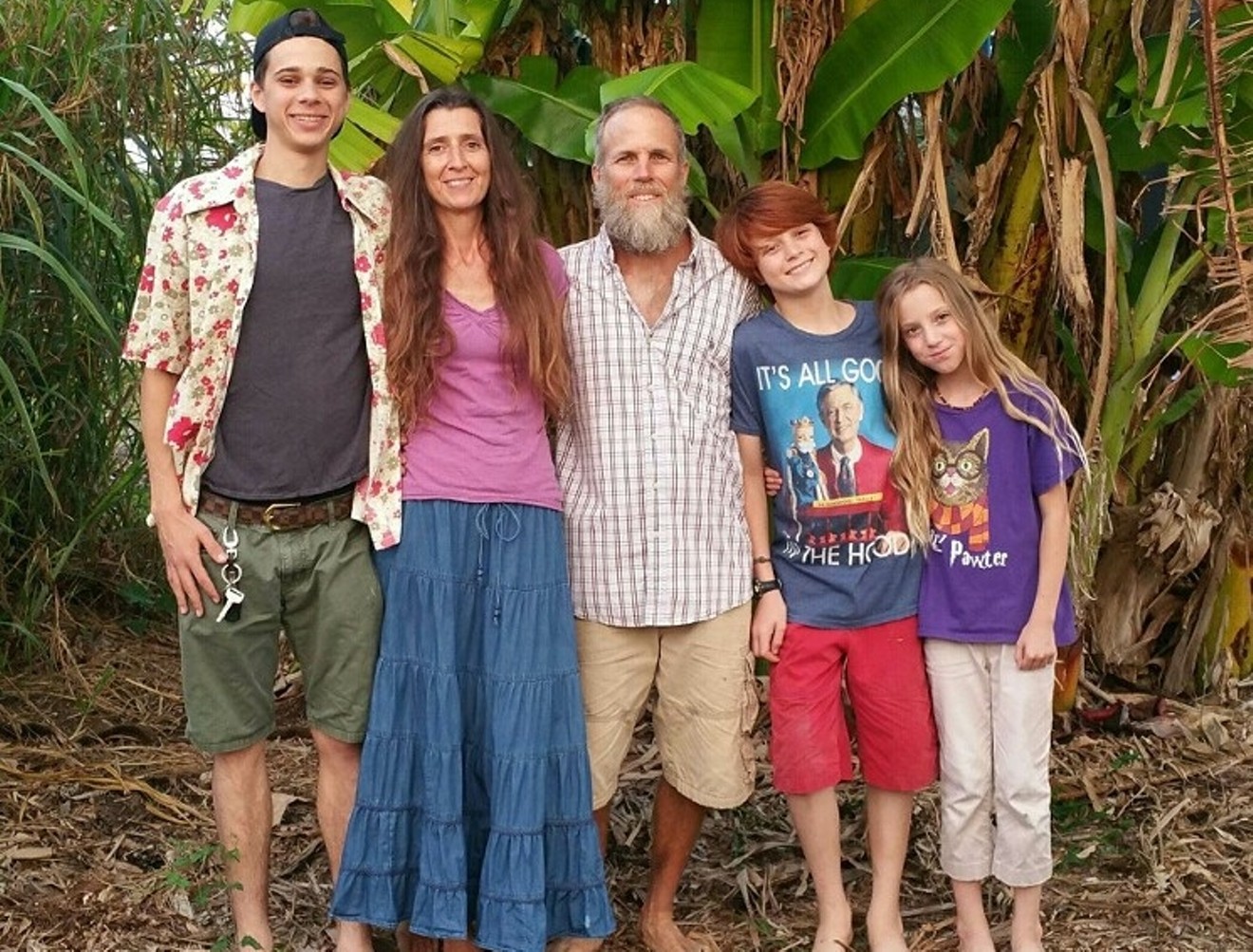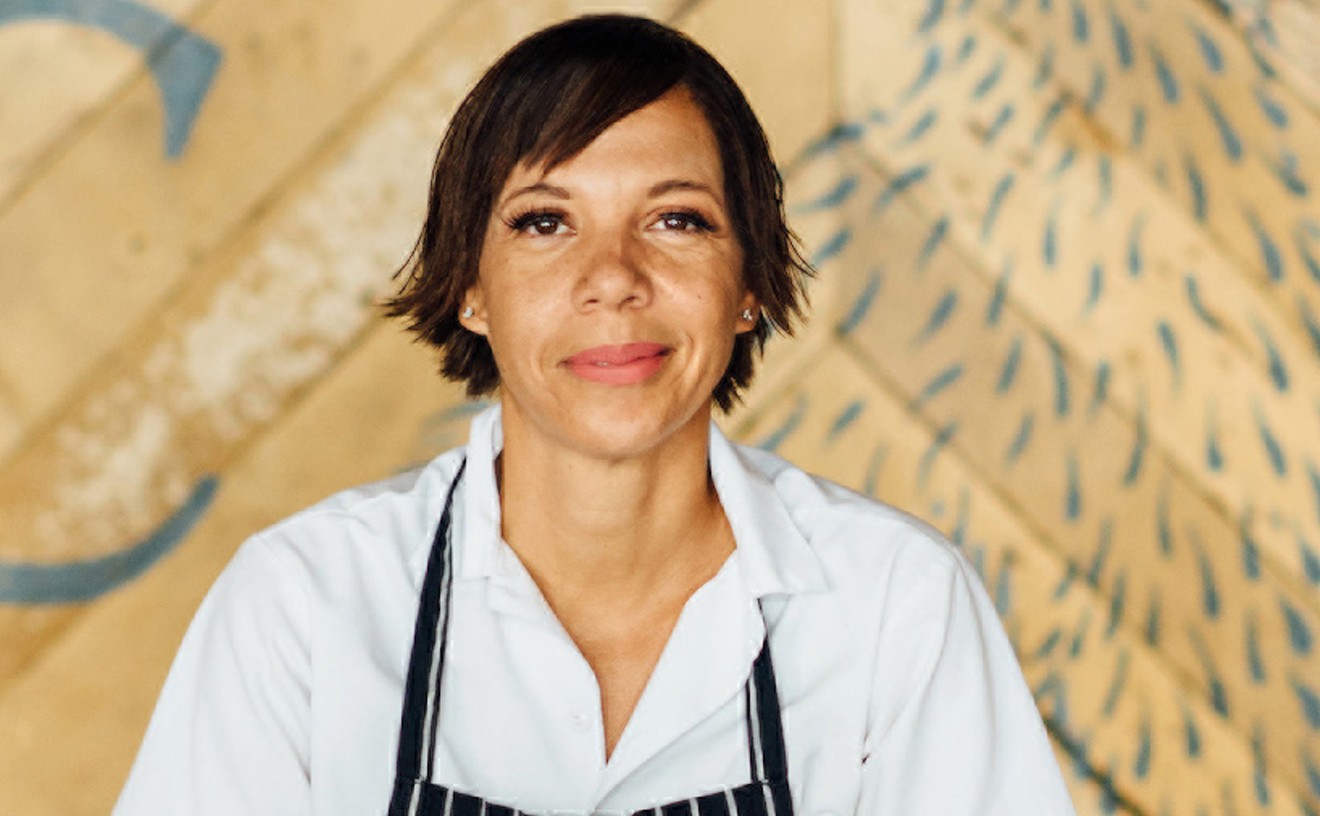Brendan Sutton knew he wanted to be a farmer in his mid-20s. Now, at age 50, he grows produce that fills the coolers at Ghee Indian Kitchen, widely regarded as one of Miami-Dade's best restaurants.
Sutton, who is lean and tan with a bushy beard and a hint of a drawl, has been with Nevin Patel since the chef's home farm and restaurant were in their infancy. Sutton helped fellow farmer and friend Jason Long of Davie's Tree Amigos Growers install the beds in the backyard of Patel's Homestead spread and was eventually hired by the Patel family to oversee its once-small farm that today occupies just about every square foot of what had once been a manicured lawn.
Now the groundwork is being laid for the upcoming growing season on Patel's homestead and Sutton's new acre-and-a-half spread that will be dedicated to supplying both Ghee locations as well as Erba, Patel's forthcoming Italian concept with fellow Michael Schwartz alum Tim Piazza.
"This year, just in tomatoes alone, we’ve already put in over 200 plants — 19 varieties — and that’s only taking up a tenth of the space we have. If you think about that kind of scale, we're going to have some very significant production," Patel says. "It's going to be amazing."
Sutton's path to overseeing Patel's produce production wasn't a straight line. Born and raised in Daytona Beach, he gleaned first farming experience alongside his grandfather, who tinkered with a hobby farm on an empty lot alongside the family home.
"He was big on growing stuff that did well in South Florida, as opposed to trying to grow things meant for more temperate climates," Sutton says. Together they would harvest peanuts, wing beans, an edible vining leaf he called pug boon, and long, slender cucuzzi squash.
After high school, Sutton left for Gainesville for a degree in broadcast journalism that he quickly abandoned to spend a year teaching English on the outskirts of Tokyo. When he returned, he began studying the works of John Jeavons, widely regarded as the father of a form of organic farming that seeks to gain the greatest amount of produce from the smallest amount of space.
"I read a really heady interview with him about the importance of sustainability and the dire situation our planet is in, and everything just clicked," he says.
From there, he moved to Oregon to become an apprentice farmer, then to Hawaii, where he spent a year surfing and growing temperate greens such as kale, lettuce, and chard on the island of Kauai. His first child was born after he returned to the mainland United States and then settled into a reliable job as a carpenter, but he never kicked the thought of farming.
Despite his experience, getting started hasn't been easy. Ambitious farmers in South Florida live a life of trial-and-error trying to discern which plants will grow best here versus which ones cooks want to use. Then there's constant pest and disease pressure, coupled with the continual threat of flooding, which in 2015 washed away many farmers' early-season plantings and preparations.
Nevertheless, Sutton and Patel are slogging through and spending somewhere between $12,000 and $15,000 on Sutton's farm to install the irrigation and infrastructure while preparing the limestone-filled soil for planting. At the same time, Sutton is building a 1,400-square-foot home on his farm where he, his wife Laura (who will likely join him on the farm this season), and their three children will live. So far, he's seeded those 19 varieties of tomatoes, sunchokes, beets, carrots, radishes, and cilantro. As the weather cools and dries, they'll begin introducing cucumbers and other, more delicate crops to see how they fare.
"Niven is giving me a chance to pursue my dream," Sutton says. "There was a long time between discovering my life's work and actually being able to practice it full-time, but it was all worth it.
[
{
"name": "Air - MediumRectangle - Inline Content - Mobile Display Size",
"component": "19274298",
"insertPoint": "2",
"requiredCountToDisplay": "2"
},{
"name": "Editor Picks",
"component": "17482312",
"insertPoint": "4",
"requiredCountToDisplay": "1"
},{
"name": "Inline Links",
"component": "18711090",
"insertPoint": "8th",
"startingPoint": 8,
"requiredCountToDisplay": "7",
"maxInsertions": 25
},{
"name": "Air - MediumRectangle - Combo - Inline Content",
"component": "17482310",
"insertPoint": "8th",
"startingPoint": 8,
"requiredCountToDisplay": "7",
"maxInsertions": 25
},{
"name": "Inline Links",
"component": "18711090",
"insertPoint": "8th",
"startingPoint": 12,
"requiredCountToDisplay": "11",
"maxInsertions": 25
},{
"name": "Air - Leaderboard Tower - Combo - Inline Content",
"component": "17482313",
"insertPoint": "8th",
"startingPoint": 12,
"requiredCountToDisplay": "11",
"maxInsertions": 25
}
]













